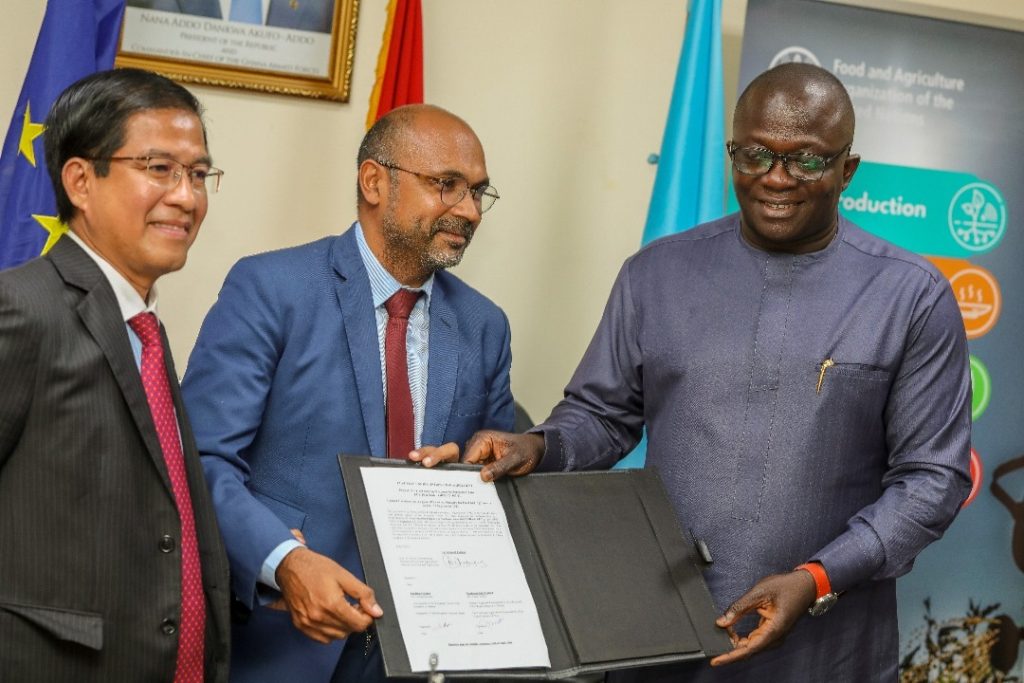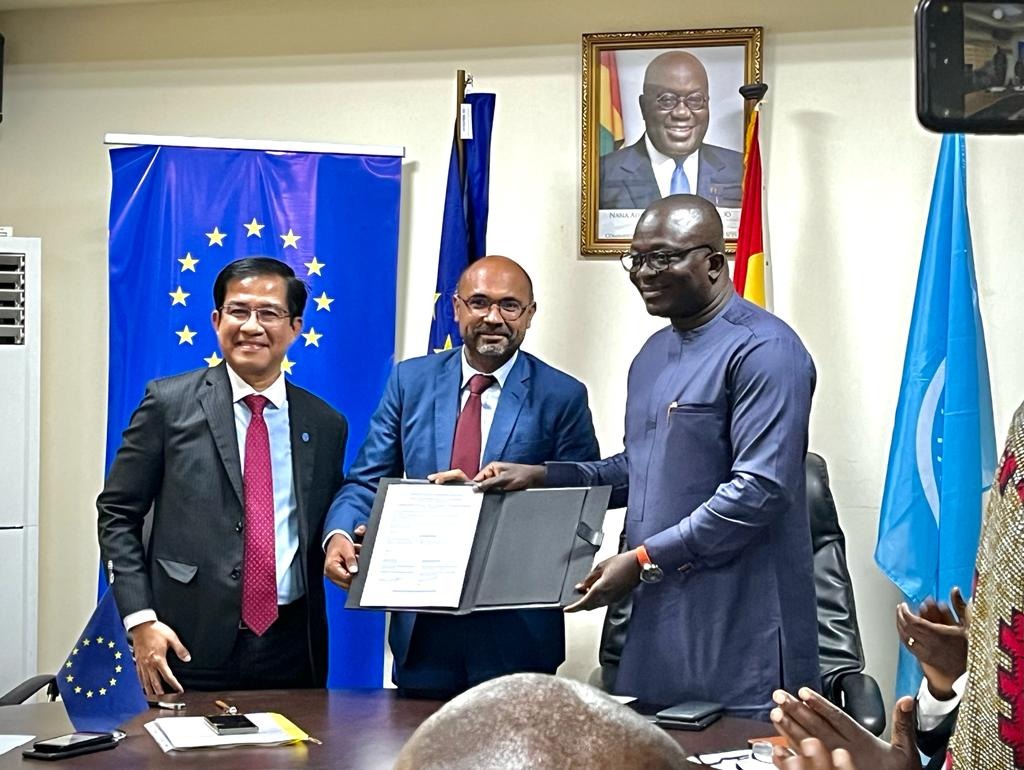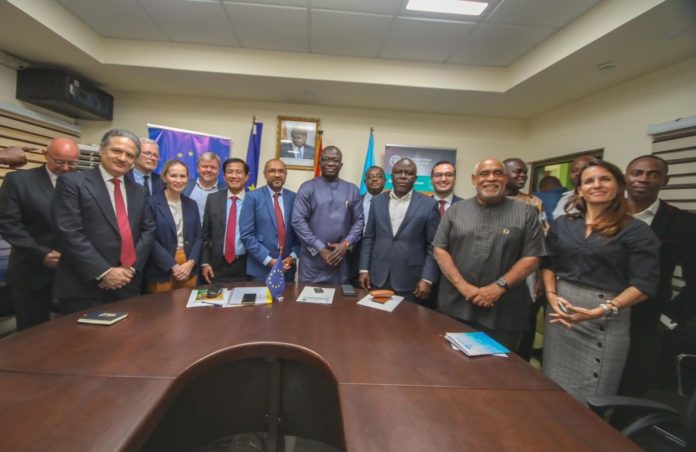The European Union (EU), the government, and the Food and Agriculture Organization of the United Nations (FAO) have launched a 10 Million Euro project to support vulnerable populations grappling with food insecurity in Northern regions.
In a joint statement issued by these groups, more than 50,000 people will benefit from the 3-year project.
The project amongst others is aimed at empowering communities to build resilient and profitable food production systems.

“The EU-funded, FAO-led project will be strategically concentrated in the northern regions of Ghana, where it aims to achieve the following outcomes: More economically sustainable and inclusive food systems: empowering communities to build resilient and profitable food production systems. Reinforced environmental sustainability of food systems: promoting practices that protect the environment and conserve natural resources, Enhanced social sustainability and gender responsiveness of food systems: ensuring equitable access to food and nutrition, focusing on women and vulnerable populations, Improved governance and institutional sustainability of food systems: strengthening”.
The EU ambassador to Ghana, Irchad Razaaly said the project is in response to the rising cost of food.
“This 10 million Euro emergency measure has been mobilized in record time and represents the commitment and solidarity of the EU and its Member States in the face of the rising cost of food and to safeguard food security and transitioning to more resilient food systems in Ghana,” Irchad Razaaly stated.
Representative for Africa and Representative in Ghana, Yurdi Yasmi, FAO Deputy Regional stated that the collaboration shows their commitment to ending hunger and malnutrition in Ghana.
“The collaboration between FAO, the European Union, and the Government of Ghana shows our
commitment to rural families in Ghana and ending hunger and malnutrition while supporting the
transition to more sustainable agrifood systems” Yurdi Yasmi said.

The groups in their statement indicated that the allocated funds will primarily focus on the sustainable development of crucial agribusiness value chains, including maize, millet, sorghum, groundnut, vegetables (tomatoes), poultry, and piggery.
These efforts, the groups believe will complement the government’s initiatives, such as Planting for Jobs Phase 2, to mitigate the adverse impacts of rising food, fertilizer, and fuel prices in vulnerable areas, to help alleviate poverty, hunger, and malnutrition.
The Minister for Food and Agriculture, Bryan Acheampong, expressed the government’s appreciation to the groups for supporting Phase II of Planting for Food and Jobs.
“The Government appreciates the EU and ever reliable partner, the FAO, coming in at the time when the need to refocus our food systems deliver on nutrition and resilience is being consummated into the Planting for Food and Jobs, Phase II programme,” he stated.


